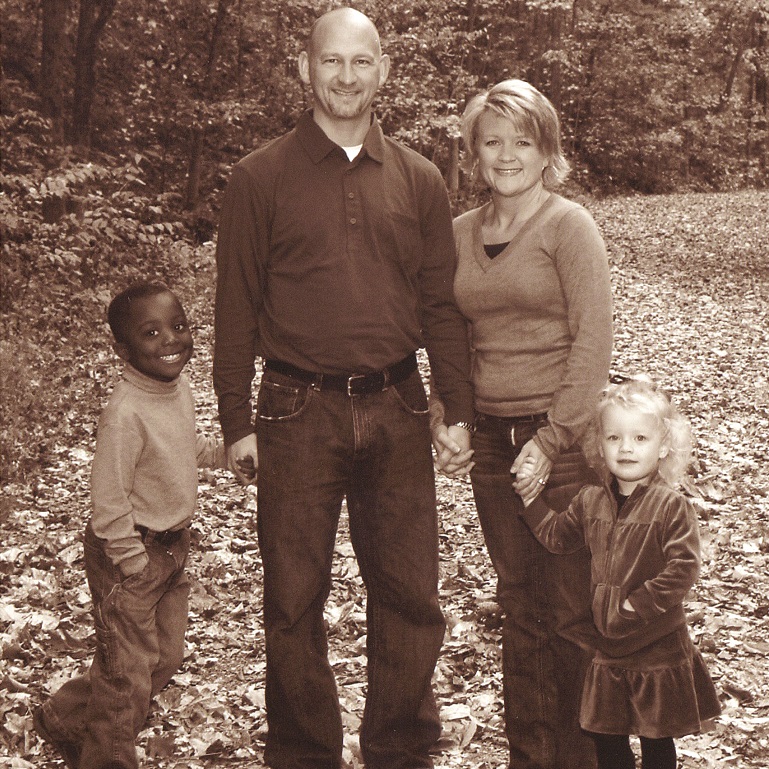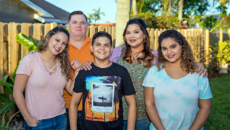“Oh, you guys,” my mother-in-law fretted when she learned that my husband, Marc, and I had started the process of adopting a second child. “Look what you have! You’ll never get another child as wonderful as Natalie! Why not just be happy?” My mother-in-law is a worrier. She is also a kind, intuitive woman, and, when she begged us to stop trying to grow our family, she touched on some of our own concerns.
Like biological parents considering a second child, adopters need to weigh many considerations—whether we’ll be able to love another child as much as we love our first, our ages, the expense—all the questions biological parents weigh, and then some. But what pushes most second-time adopters past all uncertainty is the desire to raise another child. “I so loved the experience the first time around, I was determined to do it again as soon as I could,” says Emily Breeden, of Oregon. Susan Olson, of Colorado, and her husband agree. Despite qualms about their ages—Susan is 44 and her husband is 57—they’re planning a second adoption. “For us, the overriding reason is the joy we get from parenting.”
There are no statistics to tell us how many families adopt more than once. But given the compelling reasons to adopt again—to fall in love with a child, to fulfill your dream of what a family should be, to give your first child a sibling—it’s easy to see why many families do. I know that life without our youngest daughter, Lana (as Marc’s mother happily agrees) would be so much less fun, meaningful, and love-filled—for her and for us—that it’s painful to contemplate.
Still, deciding to adopt again requires careful thought—about the emotional, physical, and financial impact it will have on you and your family, its effect on family dynamics, and, in the case of an open adoption, birth family involvement.
Can You Love Again?
“We always wanted more than one child,” says Carolyn Halliburton, of Texas. “But my fear was that I would not love my second child as much as my first—how could I possibly love another child as much as my precious daughter?
Carolyn is not alone. Most second-time adopters, including me and Marc, initially had this concern, as do most biological families. They worry that it won’t be as easy to bond with a second child, or that the relationship they have with their first might be upset by a new addition to the family. Whether or not bonding happens on a different schedule or just feels different the second time around—and it may—it’s comforting to know that you will love a second child as much as you love your first.
How Will You Afford It?
It’s expensive to raise kids. Estimates vary considerably, but they’re all high—in the $200,000 range for direct expenses before college. Indirect costs—salary and benefits lost because a parent quits a job or cuts back on hours in order to parent as he or she wants—can add to the tab. When Marc and I decided to adopt the first time, we thought about what we’d be giving up to parent—footloose freedom and disposable income to enjoy it.
The second time…well, Marc and I already knew what parenthood did to freedom, but what about the expense? While second children require fewer direct expenditures—we adopted another little girl, in part, to save money on shareable gendered goods, like bedrooms, toys, and clothes—you’ll only be able to shave off less than 25 percent of the cost of raising a child.
Then there are the costs of adopting, ranging from hundreds to tens of thousands of dollars. The necessary sacrifices, such as postponing retirement to cover college costs, may seem significant, but adopters are not without financial assistance. There’s the federal tax credit ($10,960 in 2006), and more employers are offering adoption benefits all the time. Working a second job, running car washes and holding bake sales, and opting to adopt from foster care, a lower-cost adoption option, are some of the other solutions that second-adopters pursue.
Angela Ferensic, of Michigan, explains it this way: “We have a three-year-old son, who is the love of my life, and I cannot imagine going through life not being able to feel that way about another child. Although the financial stress is greater this time, it is worth it to us to pursue another adoption.”
Got Energy?
Most adoptive parents are, to put it gently, older. Many people who would love to adopt again have to think long and hard (but not too long, or time really will run out) about whether they have the energy to parent another child. Marc and I occasionally toy with the idea of adopting a third time, but, before too long, we break down laughing at ourselves. As if.
Parents in their 40s and older, though, may be able to keep up with a second child if they’re willing to do some careful preparation, including a full physical and family health history evaluation, an update of their will with detailed guardianship plans for their children, and applying for life insurance or setting up a trust for them, according to Pat Johnston, author of the forthcoming second edition of Adopting After Infertility (Perspectives Press).
Will it Change My Family?
To tweak the popular phrase, adopting a second child changes everything. It adds another relationship to the dynamic of a family, and changes the relationship between the parents, and between each parent and the first child. It’s natural to be anxious about such changes, especially if your existing family is happy. Beth Schickel, who lives in Kentucky, knows the feeling. “We worry a little about adding another child to the family, but, as second-time parents, we feel prepared to handle adjustment issues, if they arise,” she says. “Even though we’re a little less excited about bottles this time, we know we made the right decision.”
Families in open adoptions have additional concerns—whether their relationship with a new birth family will be as positive (or not) as the first, and how it will affect the children if one of the birth families is closer to the adoptive family than the other. Carolyn Halliburton and her family went through this. Her relationship with her daughter’s birth family is limited to an exchange of e-mails, photographs, and small gifts. Hoping to have at least as much with her second child’s birth family, she got more—an engaged, loving relationship with an extended family.
Her older child struggles to understand why her little brother’s birth family is so close, and her own is not. “Someone told me once,” says Carolyn, “that our job isn’t to make everything equal for our children, or to fix everything that is difficult. Our job is to help them learn how to handle it when things aren’t ‘fair.’ I keep this in mind when my daughter is sad. I work to help her deal with it.”
Brothers and Sisters
One of the reasons many parents adopt again is to provide siblings for an only child. Even though data show that only children do well socially, academically, and professionally, most American parents feel that it’s better to have a sibling than not. “When we began our first adoption, we knew that we wanted to adopt again,” says Ann Roberson, of Maryland. “My husband and I came from large families, and we wanted our first child to have a sibling with whom to share the joys, the trials and tribulations, and the adventures of childhood.”
For some parents, there’s a desire for a child who shares the cultural or racial background of their first. MaryBeth Lassman, of California, and her husband made the decision to adopt a second African-American child. “As our children grow up, they’ll have each other to turn to as they struggle with being ‘different’ from their parents,” says MaryBeth. “It’s not so important that they look alike, but that they have someone who loves them and understands what they are feeling and why.”
While it’s not a good idea to cave to pressure from friends and family, sometimes it’s someone in your own house doing the nudging. “We wanted a sibling for our two-and-a-half-year-old, but weren’t sure we were up for the challenge,” admits Amy Francis, of Michigan. “Then, out of the blue, our son said, ‘Dada, find me a brother. Find my buddy.’ Our paperwork was in the mail a month later.”
So, What to Do?
Most adoptive families I know have more than one child and are very happy. They seem to have discovered, as Marc and I did, that a second child can indeed claim your heart as thoroughly as a first; that most children find ways to get along with a new sibling; and that sadness over the loss of a cherished family dynamic is balanced by delight over a new one.
If only there were a one-size-fits-all answer about whether to adopt a second time! The secret to making the decision, my fellow parents, is to do what you did when you contemplated your first adoption: Take all of the salient factors into account, and decide in your heart whether or not to take the leap.
JOIN You are viewing this exclusive AF content as a guest. To access our full Adoption Parenting Library — plus digital issues, eBooks, expert audio and more — join Adoptive Families today.  |



